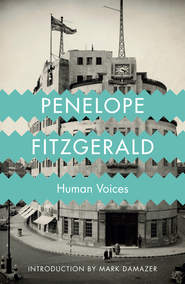По всем вопросам обращайтесь на: info@litportal.ru
(©) 2003-2024.
✖
The Beginning of Spring
Настройки чтения
Размер шрифта
Высота строк
Поля
The driver replied that women were only company for each other. They were created for each other, and talked to each other all day. At night they were too tired to be of any use.
‘But we weren’t meant to live alone,’ said Frank.
‘Life makes its own corrections.’
They would have to pull up at the back of the station, in the goods yards. The driver wasn’t one of the smart ones, he hadn’t a permission to wait at the entrance.
‘I’ll be back soon,’ Frank said, giving him his tea money. The words meant nothing except general encouragement, and were taken in that spirit. Snow was lightly falling. The driver began to drag a large square of green oilcloth over the horse, whose head drooped towards the ground, dozing, dreaming, of summer.
The yard was served from the Okruzhnaya Railway which made a circle round the entire city, shuttling the freight from one depot to another. The sleigh had arrived at the same time as a load of small metal holy crosses from one of the factories on the east side. Two men were painstakingly checking off the woven straw boxes of a hundred and a thousand.
Frank walked past the coal tips and the lock-up depositories through the cavernous back entrance of the station. Inside the domes of glass a gray light filtered from a great height. Not many people here, and some of them quite clearly the lost souls who haunt stations and hospitals in the hope of acquiring some purpose of their own in the presence of so much urgent business, other people’s partings, reunions, sickness and death. A few of them were sitting in the corners of the station restaurant watching, without curiosity or resentment, those who could afford to order something at the gleaming rail or the buffet.
The stationmaster was not there. ‘The nachalnik is in his office. This is the refreshment room,’ said the barman. ‘Quite so,’ said Frank ‘but didn’t his wife come in here earlier, with three children?’ – ‘His wife is never here, this is not her place, she is at his house.’ The waitress, tall and strong, elbowed him aside as she lifted the flap of the bar and came out. ‘Three little English, a girl with brown hair and blue eyes, a boy with brown hair and blue eyes, a little girl who was asleep, her eyes were shut.’ – ‘Did they have a clothes-basket?’ ‘Yes, when the little one sat down she put her feet on it, her legs were still too short to reach the ground?’
‘Where are the children now?’
‘They were taken away.’
The waitress folded her arms across her bosom and seemed to be challenging Frank, or accusing him. Her accent was Georgian, and it was folly, he knew, to think of Georgia as a land of roses and sunshine only. But Georgians pride themselves on their rapid changes of mood. Frank said, ‘In any case, you are not to be held responsible. In no sense was it part of your work to keep a check on everyone in the refreshment room.’ Immediately she yielded, becoming anxious to please.
‘They’re not your children, I can tell that. You wouldn’t let them arrive like this in the city without anyone to take charge of them.’ Frank asked where the stationmaster lived. His house was in the Presnya, between the cemetery and the Vlasov tile works.
He recrossed the swept and wheel-crushed snow of the coal yards. The horse was standing, entirely motionless, in the white distance, the driver was coming out of the urinal. He agreed to wait while Frank walked the short distance to the Presnya.
Along a side-road patched with clinker, carriage springs, scrap iron punchings and strips of yellow glazed tin which once advertised Botkin’s Tea and Jeyes’ Fluid, wooden houses stood at intervals. They were raised by two wooden steps above the ground and Frank saw that the entrance, as in the villages, would be at the back. At No. 15, to which he’d been directed, the back door, in fact, was not locked. He shut it behind him, and was faced with two doors.
‘Who is at home?’ he called out.
The right-hand door opened and his daughter Dolly appeared. ‘You should have come earlier,’ she said. ‘Really, we have no business to be here.’
Inside, the table, covered with oilcloth, had been shoved into the right hand corner so that no-one could sit with their back to the ikons and their glimmering lamps. Annushka was asleep on the clothes-basket, Ben was at the table looking at a newspaper, the Gazeta-Kopeika, which dealt entirely with rapes and murders. He looked up, however, and said, ‘When you’re on a main line, the distance between posts is a twentieth of a verst, so if the train does that in two seconds you’re going at ninety versts an hour.’
‘What happened?’ Frank asked. ‘Who’s looking after you? Did you get lost on the way?’
A dark woman in an overall came in, not the stationmaster’s wife, if indeed there was such a person, but, as she explained, a kitchen-mother, called in to help as required.
‘She only gets eighty kopeks a day,’ said Dolly. ‘It’s not much for all this responsibility.’ She put her arm round the woman’s waist and said in caressing Russian, ‘You don’t earn enough, do you, little mother?’
‘I’ll settle up with everybody,’ said Frank ‘and then straight home to Lipka Street. We shall have to wake up Annie, I’m afraid.’
The children’s outdoor clothes were airing above the stove, along with the stationmaster’s second uniform, and a heap of railway blankets. Hauling down the birchwood clothes frame was like a manoeuvre under sail. Annushka woke up while she was being crammed into her fur jacket, and asked whether she was still in Moscow. ‘Yes, yes,’ said Frank.
‘Then I want to go to Muirka’s.’
Muir and Merrilees was the department store, where Annushka scarcely ever went without being given some little extra by the astute floor manager.
‘Not now,’ said Dolly.
‘If it hadn’t been for Annushka,’ said Ben, ‘I think Mother might have taken us on with her. I can’t be sure, but I think she might.’
The whole house began to shake, not gradually, but all at once, from blows on the outer door. The kitchen-mother crossed herself. It was the sledge-driver. ‘I shouldn’t have thought you were strong enough to knock like that,’ Frank told him.
‘How long? How long?’
At the same time the stationmaster, perhaps taking the opportunity to find out what was going on in his house, came in through the front. Probably he was the only person who ever did so. This meant that the whole lot of them – Frank, the children, the kitchen-mother, the stationmaster – had to sit down together for another half-hour. Annie’s coat had to be taken off again. She fell asleep again instantly. Tea, cherry jam from the cupboard which could be opened now that the stationmaster had brought his keys. The kitchen-mother suddenly declared that she couldn’t bear to be parted from her Dolly, her Daryasha, who resembled so much what she had been like herself as a child. The stationmaster, still wearing his official red cap, lamented his difficulties at the Alexandrovna, where he was besieged by foreign travellers. His clocks all kept strict St Petersburg time, 61 minutes in advance of Central European time and two hours one minute in advance of Greenwich. What was their difficulty?
‘You might ask to be transferred to the Donetz Basin,’ suggested Ben.
‘How old is your boy?’
‘Nine,’ said Frank.
‘Tell him that the Alexandervokzal is the top appointment. There is nothing higher. The state railways have nothing higher to offer me. But it’s not his fault, he’s young, and besides that, he’s motherless.’
‘Where’s your wife, for that matter?’ Frank asked. It turned out that, trusting no-one in Moscow, she had gone back to her village to recruit more waitresses for the spring season. They prepared to go, the sleigh-driver pointing out, for the first time, that the horse was old.
‘How old is he exactly?’ asked Ben. ‘There are regulations, you know, about how old they’re allowed to be.’ The sleigh-driver said he was a young devil.
‘They’re all young devils,’ said Frank. ‘Now I want to get them home to Lipka Street.’
They might have been away several years. The whole household, the house itself, seemed to be laughing and crying. From the carnival – that was what it felt like – only Dunyasha was absent. Almost at once she came to Frank for her internal passport, which was necessary if you were going to make a journey of more than fifteen miles, and had to be handed over to the employer. She wanted to leave, she was no longer happy in the house, where criticisms were being made of her. Frank took it out of the drawer in his study where he kept such things locked away. He felt like a man with a half-healed wound who would do better to leave it alone, for fear of making bad worse. Nellie had sent no message to him by the children, not a word, and he saw it would be best not to think about this, or he might not be able to stand it. His father had always held that the human mind is indefinitely elastic, and that by the very nature of things we were never called upon to undertake more than we could bear. Frank had always felt doubtful about this. During the past winter one of the machine men from the Press had gone by night to a spot a little way out of the Windau station, and lain down on the tracks. This was because his wife had brought her lover to live in their house. But the height of the train’s wheelbase meant that it passed right over him, leaving him unhurt, like a drunken peasant. After four trains had passed he got up and took the tram back to his home, and had worked regularly ever since. This left the question of endurance open.
While the rejoicing went on and spread to the yard and, apparently to the yard dog and to the hens, locked up for the winter, Dolly came in wearing her brown uniform from the Ekaterynskaya Gymnasium, and asked him to help her with her homework, since after all, she had to be at school by nine o’clock. She spread out her atlas, ruler, and geography exercise book.
‘We’re doing the British Isles. We have to mark in the industrial areas and the districts largely given over to keeping sheep.’
‘Did you take those with you on the train?’ asked Frank.
‘Yes. I thought they might come in useful, even if I didn’t ever get back to the Ekaterynskaya.’
‘It was lonely in the house while you were away, somewhat lonely, anyway.’
‘We weren’t away for very long.’
‘Long enough for me to see what it was going to be like.’
Dolly asked: ‘Didn’t you know what mother was doing?’
‘To tell you the truth, Dolly, no, I didn’t.’
‘I thought not,’ she added rapidly. ‘It was hard on her. After all, she’d never had to look after us before, Dunyasha did everything. Annushka wouldn’t sit still. Mother asked the attendant for some valerian drops, to calm her down, but he hadn’t any. We should have brought some with us, of course, but I didn’t do the packing. You shouldn’t have expected her to manage by herself. She had to send us back, we weren’t a comfort to her. I think you asked too much of her.’
‘I don’t agree, Dolly. I know my own mind, but so does your mother.’
3 (#ulink_787ce651-178e-5772-aaac-27a256732e13)
Frank’s father, Albert Reid, had looked ahead – not quite far enough, perhaps, but to see too clearly in Russia is a mistake, leading to loss of confidence. He was aware that the time was coming when British investors, ironmasters, mill-owners, boiler-makers, engineers, race-horse trainers and governesses would no longer be welcome. Either the Russians would take everything into their own hands or the Germans would, but he thought that the good times would last a while yet. All that had really been needed, when he started out in the 1870s, was a certificate to say that the articles of association of your company were in accordance with British law and another form in St Petersburg to say that your enterprise was advantageous to the interests of the Russian Empire. Besides that, though, you had to have a good digestion, a good head for drink, particularly spirits, a good circulation and an instinct for how much in the way of bribes would be appropriate for the uniformed and for the political police, the clerks from the Ministry of Direct Import, Commerce and Industry, and the technical and sanitary inspectors, to get anything at all. These bribes, too, must be called gifts, and with that word you began your study of the Russian language. All the other formalities – sending the balance sheets, for example, to the central government and the local Court of Exchequer – were just paperwork, which he’d done himself, with his wife’s help, by lamplight, in the old wooden house on the works site in the Rogoznkaya. Like the Russian nobility and the Russian merchants, foreign businesses were given ranks, according to their capital and the amount of fuel (soft coal, birch-bark, anthracite, oil) that their factory consumed. Reid’s (Printing Machinery) was of moderate rank. Frank’s father and mother were the only partners. Both of them had come from long families, that was why Bert had been sent out in the first place to make a living in Russia, but they only had the one son. Frank was sent over to England once or twice as a boy, to stay with his relatives in Salford. He enjoyed himself in Salford because, given half a chance, he enjoyed himself anywhere. When he was eighteen he went back for much longer, to train in mechanical engineering and printing, first at Loughborough Polytechnic, then for his apprenticeship with Croppers of Nottingham.











